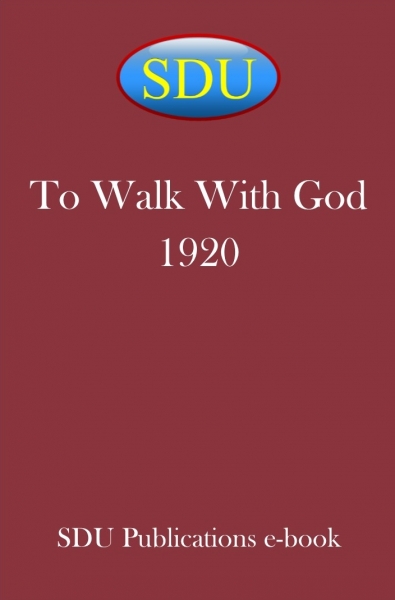DESCRIPTION
Published in 1920 | 144 pages | PDF reader required
We have been asked to give a few words of explanation as to the origin of the following "Lessons."
In the winter of 1917-18 a book called "The Seven Purposes" was published, giving an account of certain messages of a personal nature received in automatic writing, and also of a series of what purported to be spiritual revelations.
Several of Margaret Cameron's friends in Washington were very deeply interested in the book, and they resolved to try such writing for themselves. On the first day they met, they received only one or two disjointed phrases: "You will get light," the name "MeRae," and "ask H," and, that last being the nickname of a friend, she was asked to join in their experiment.
Then came the difficulty of fixing an hour that would suit every one, and two of the group, who were working at the same hospital, suggested that they should meet every day for two weeks, at a given time, and that the others should come when they could. It was in this way that the undersigned began to write together, and, through the writing, received these teachings. (We should perhaps add, for its bearing on the subject, that while one of us had no insistent personal claim in the life beyond our own, the other had lost an only son, killed in the St. Mihiel drive in September, 1918. Neither of us had ever written automatically before nor have we ever been able to write alone.)
We used a planchette (a small, heart shaped article made of wood, with two legs on wheels at the back and a pencil making the third leg at the front) because it seemed less liable to unconscious muscular action than a pencil held in the hand, and at first we obtained only circles, words and fragments of sentences, with irrelevant names and messages cutting into what we hoped vainly would become a connected phrase. We were extremely interested but bewildered and baffled at every turn. It was more like opening a window to a crowded street and listening to the chance words one could catch, than like anything else in the world.
On the eleventh day came a decided change. From the moment we began, the writing was firmer and more impelling, and we were told at once that whoever was using our hands had come with definite intention, and meant to stay with us. We had, in technical phraseology, "found our control," though we were both too inexperienced to recognize it.
From that date we have been in contact with what seems to us a clear mind or minds. We were told that as soon as we could write well enough, we were to be used for a series of lessons that "they" wished to give us, and that we were to meet every day and were at liberty to ask questions which would be answered as far as our understanding would permit. We have sometimes been told to wait for an answer until we knew more, but we have never had a foolish or irrelevant or unkind response.
After perhaps six weeks, working at least two hours every day, the lessons began. As they were originally received, in place of the words "spiritual forces" or "messengers" or "voice of the spirit " or any term denoting spiritual activity, a symbol was used, six interlacing circles enclosed by a seventh, and when we asked for an explanation, we were told that a symbol was unlimited in meaning and that, therefore, they preferred to use it, and that we must try to apprehend the sense. And when, under their direct instructions to us to publish, we began to correct and revise, the equivalent words for each symbol were written with a speed and certainty that left us amazed. It was only when we went over the manuscripts of our notes that we found how perfectly each synonym fitted into its place. (The explicit title was also given us, and we were told that we would find it in the eleventh lesson.)
We give the lessons exactly as we received them, but we have no idea whether they will have for others the spiritual significance they have for us, since we cannot give to others our own sense of being in close touch with a wise and tender personality. We realize that it will be said that there is nothing new in the teaching, and we admit that there is repetition to what seems an unnecessary degree, but we pledge our word that we have put nothing of our own into the text. We have considered it an imperative duty to add this small link to the chain of testimony which is binding our world each day more closely to the next.
Anne W. Lane.
Harriet Blaine Beale.
Washington, November 1st, 1919.

